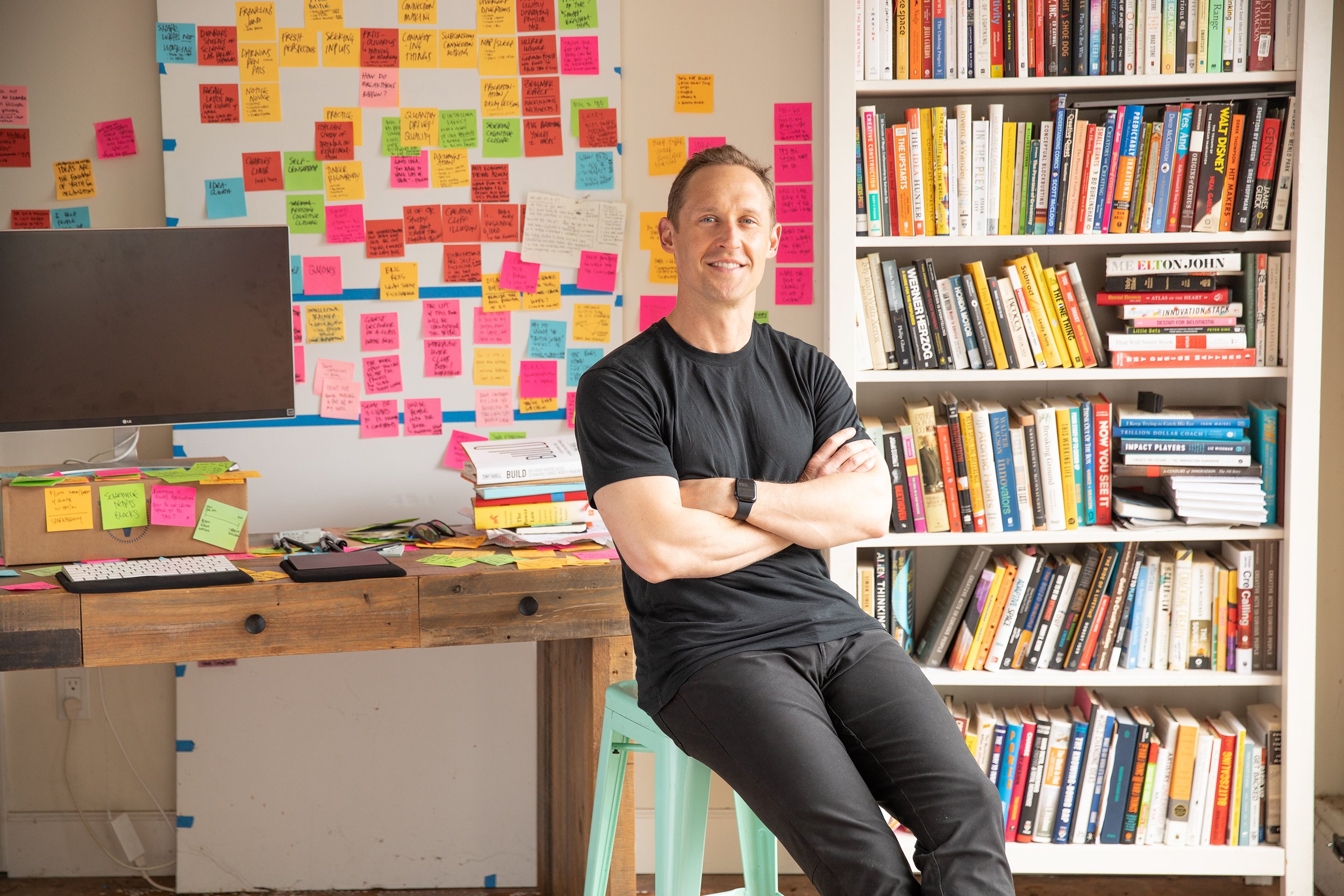
Methods of the Masters
A blog on the art & science of creative action.
Establish An Input Practice
The quality of our thinking is deeply influenced by the diversity of the inputs we collect. Implementing practices like Brian Grazer’s “Curiosity Conversations” ensures innovators are well-equipped with a variety of high-quality raw material for problem-solving.
Practice Process Mindfulness
One of the defining contributions the d.school is helping teams ask themselves, “What kind of thinking is appropriate, when?” We call such clarity being “Mindful of Process.” And it can seem like semantics until you realize we need to show up in different ways.
Make Room for Thinking
Sprints are a fantastic tool to drive innovation with efficiency. But sometimes you’ve got to be inefficient in order to create effectively. A few reflections on a troubling trend I'm seeing emerge among would-be innovation practitioners.
Your AI Task Force is Missing the Point
Undisputed "Beyond the Prompt" fan favorite Jenny Nicholson drops by to share some insights from her adventures helping folks innovate with AI. Important lessons for any leader looking to unleash their teams with this transformative technology.
Seek Inspiration to Spark Innovation
Rather than waiting around for lightning to strike, take a more proactive approach. You can provoke your own imagination. One of the most effective, powerful, and fun tools we have created for such self-provocation missions is what we call “Analogous Exploration.”
Embrace the Useless: Unlock Innovation Through Unproductive Moments
Kevin Kelly is the co-founder of WIRED magazine. Long-hailed for his counter-intuitive business wisdom, he did NOT disappoint on a recent episode of Beyond the Prompt. Here, he shares an overlooked secret to courting break throughs and driving joy.
Go Pro in Innovation
To become a professional in any field takes an enormous amount of skill, and hard work. Routine practice is a hallmark of the “professional” in any context. Here’s how to take a professional mentality into the innovation arena.
Forget About “New Ideas”
Two words most commonly associated with ideas are “good,” and “new.” I’ve often encouraged folks to forget “good.” Here’s the case for forgetting, “new,” too.
Have and Share a Bad Idea
From Steve Jobs to Taylor Swift to Seth Godin, there’s remarkable consistency among “the greats”: having bad ideas is a necessary precondition to having good ones.
Prune Your Ideas
To stimulate innovation, ideas and experiments are critical. But how to free up resources necessary to drive new initiatives forward? Start by pruning back some work that’s past its prime. Here’s how.
Take A First Try
Ed Catmull reveals the great secret behind Pixar’s success: they try before they’re perfect. “All our movies suck to begin with. Our job is to take them from suck to not suck.”
Commit An Epiphany
Inside every single human being lies the potential to discover hence-unknown possibilities, to have an epiphany. My mission in life is to teach others the tools that turn that seemingly-magical moment into a methodical, repeatable reality.
Turn Off Critical Thinking
Dr Charles Limb, a Johns Hopkins neuroscientist obsessed with improvisational jazz, conducted a fascinating study on creative flow. It has profound implications for what we practice, and what we value, in our individual lives and organizations.
Monitor Creative Wellness
Self-care is all the rage, and rightly so. We cannot do our best work without attention to the instrument of self. But for all our emphasis, we’ve missed a vital component of wellness.
Court Serendipity
Steve Jobs said, “Theres a temptation in our networked age to think that ideas can be developed by email and iChat. That's crazy. Creativity comes from spontaneous meetings, from random discussions.”
Answer the Right Question First
Many individual innovators, and the vast majority of organizations, expend far too many resources answering the illusive question, “Can it even be done?” Instead, they should invest a fraction of the effort to answer a simpler, more important question first.
Be Sparkable
One of the greatest compliments you can pay a collaborator at the d.school is to say they’re “sparkable.” What exactly does that mean? They’ve learned to have a particular effect on creative combustion.
Unbox Thyself
The need to “think outside the box” seems obvious. A few Nobel Prize winners share their thoughts on how to do it. (It’s not nearly as complicated as you might think.)
Set Boundaries
John Cleese argues convincingly that, while we can’t guarantee that creativity will yield to our invitations, yet blocking time and space for it to emerge is essential.
Watch the Corners
Jon Beekman, Founder and CEO of ManCrates, shares an enlightened tactic for helping innovators find breakthroughs they aren’t even looking for.




















